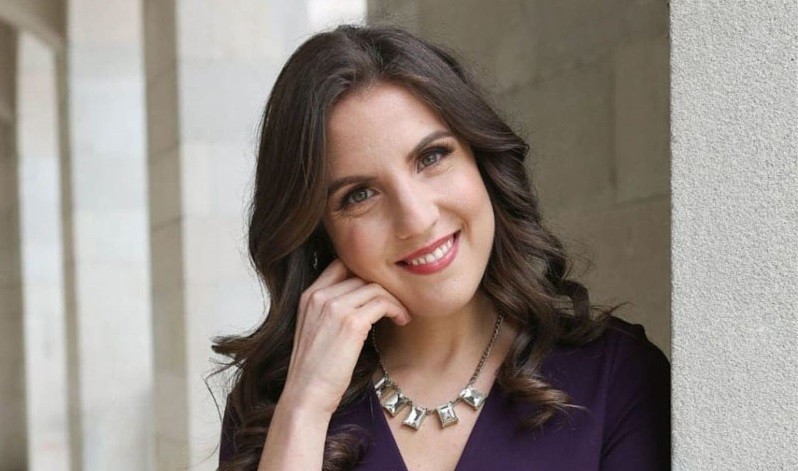39 Questions Emotionally Intelligent Leaders Should Be Asking

The CAA launched its annual alumni leadership training program, a five-week virtual program called the Columbia Alumni Leaders Experience (CALE) on October 10. Following the leadership theme, Melody Wilding '11SW of the Columbia Career Coaches Network shares questions emotionally intelligent leaders should be asking.
Great leaders are great communicators.
Namely, they have perfected the art of active listening, a component of emotional intelligence that requires you to be completely present with another person.
When you’re listening actively, you’re not in your head formulating what you’ll say next. Rather, your focus is 100% on the other person and how they are feeling.
This is one reason Sensitive Strivers make amazing leaders — their empathy and thoughtfulness translate into building deep relationships and trust.
But many of my coaching clients get tongue-tied when it comes to one crucial part of active listening: asking questions.
They overthink their responses and end up getting so trapped in their heads (trying to say the “right” thing or wondering how the other person is judging them), that they lose sight of the goal of the conversation, which is to connect.
39 Questions to Ask in Meetings and One-on-Ones
To you help you, here is a list of questions I share with my clients.
Keep these saved somewhere so you can refer back to them and become the emotionally intelligent leader you are meant to be.
WHEN YOU WANT SOMEONE’S REACTION TO INFORMATION
- What do you make of what I’ve shared?
- What do you think is best?
- How does this look to you?
- What would you add or change?
- How do you feel about it?
- What’s your impression of X?
- How does this fit into your plans?
WHEN YOU NEED CLARIFICATION
- What do you mean?
- What does it feel like?
- What is the part that is not yet clear?
- What do you want?
- What’s your desired outcome?
WHEN YOU WANT THEM TO ELABORATE
- Can you tell me more?
- What else?
- What other ideas/thoughts/feelings do you have about it?
- What is an example?
- On a scale of 1 to 10 how urgent/serious is X?
- What is the hardest/most challenging part for you?
WHEN YOU WANT THEM TO ELABORATE
- What is here that we want to explore?
- What part of the situation have we not yet explored?
- What other angles can you think of?
- What are our other options?
- What assumptions can we let go of?
- What’s the best outcome we can imagine?
WHEN YOU WANT TO UNDERSTAND WHY SOMETHING HAPPENED
- What contributed/caused it?
- What led up to it?
- What have you tried so far?
- What did we learn from X?
- How could you turn this around next time?
WHEN YOU WANT SOMEONE TO IMPLEMENT AND FOLLOW-THROUGH
- What is the action plan?
- What could be our first step?
- What progress have you made so far?
- What support do you need to accomplish it?
- What could get in the way?
WHEN SOMEONE IS NAYSAYING OR RESISTANT TO YOUR IDEAS
- Before we get into drawbacks, can you share some reasons you think this will work?
- What suggestions do you have for improvement?
- What would you like to see change for the better?
- What’s working right now?
- Let’s operate from the assumption that we will be successful. How does that shift your perspective and ideas about what to do next?
Now that you have a full list of questions you can relax and actively listen instead of thinking of what you’ll say next. Which one will you try out first?
A version of this article originally appeared on Melody Wilding's website.
Melody Wilding '11SW teaches human behavior at The City University of New York and is a nationally-recognized Master Coach who distills psychological insights into actionable career advice. A licensed social worker trained at Columbia, she’s helped thousands of professional women and female entrepreneurs master their mindset and emotions for greater success.
Learn more about Wilding and view the full Columbia Career Coaches Network
